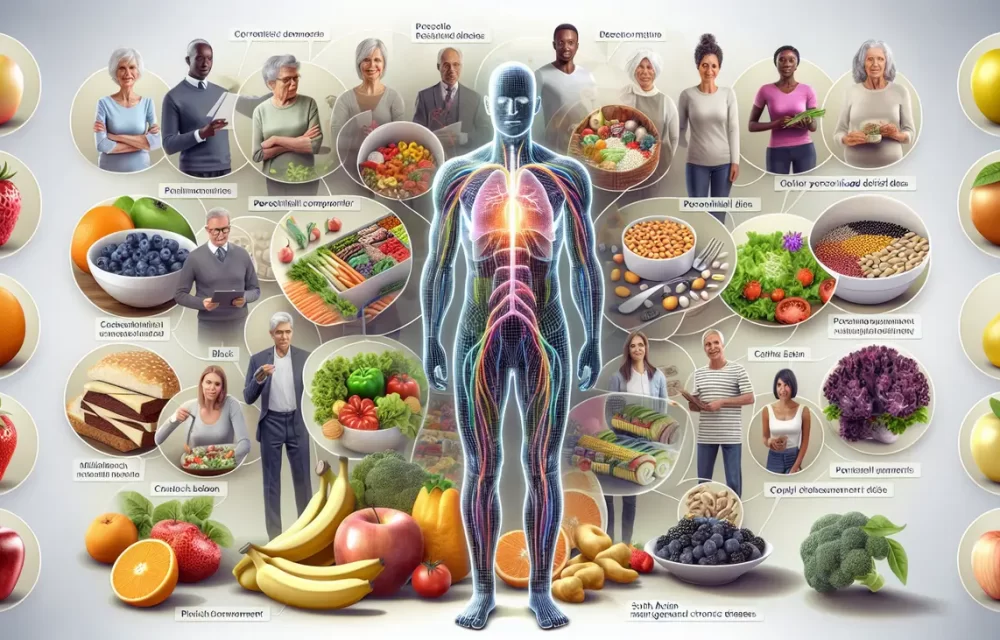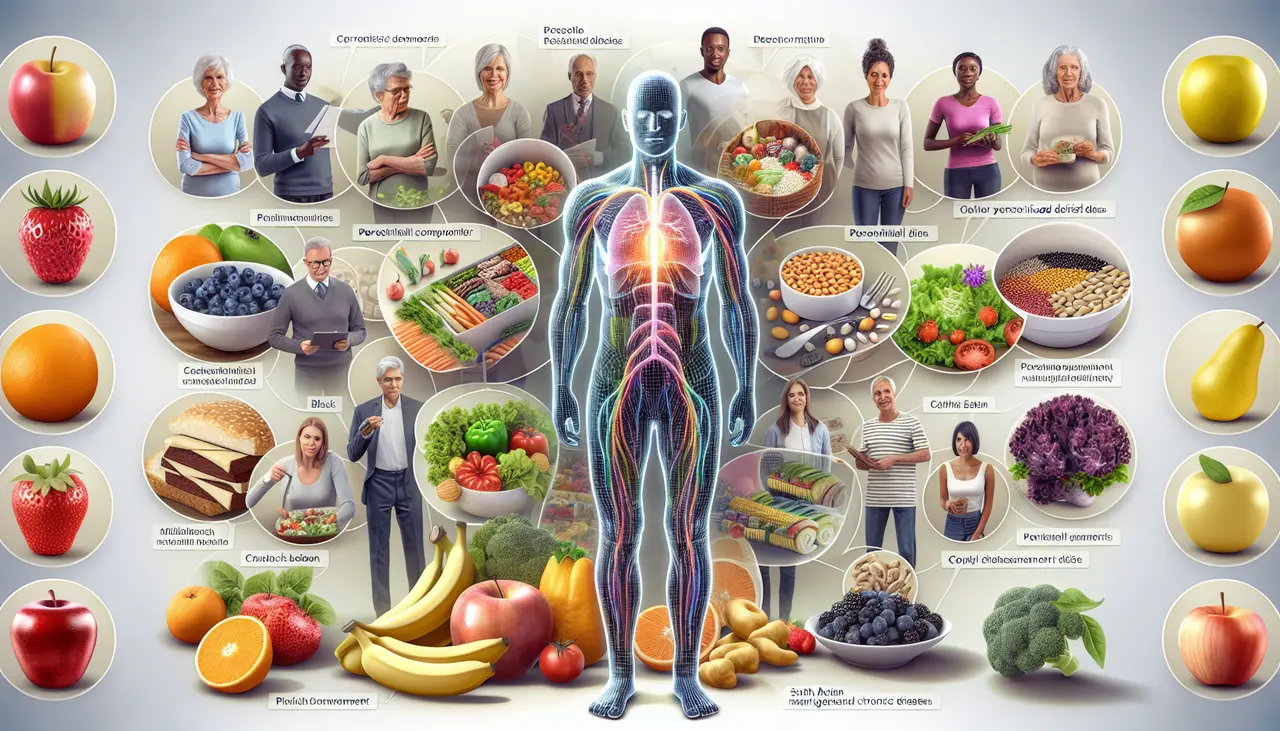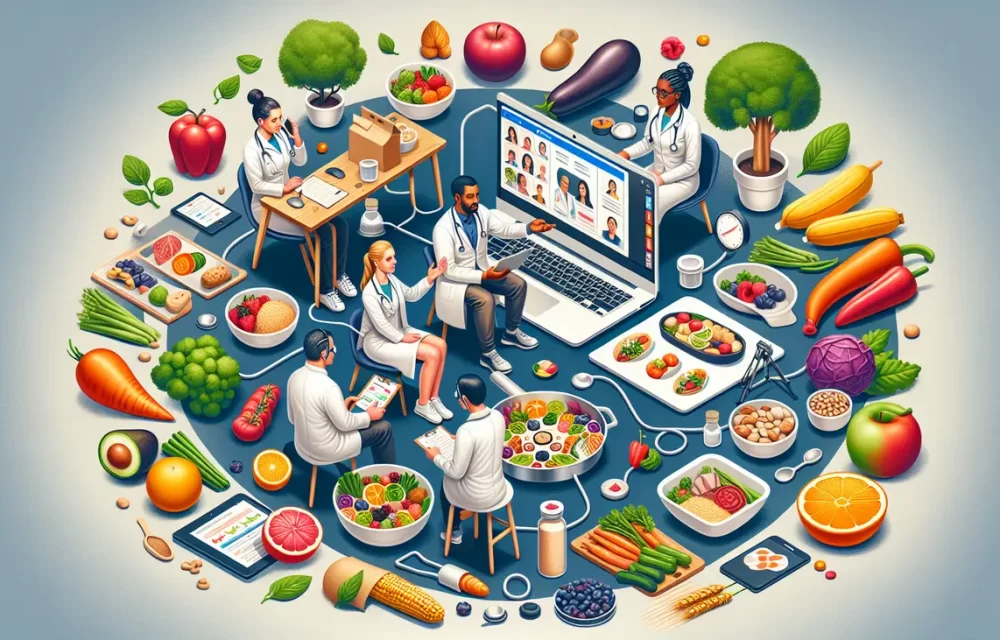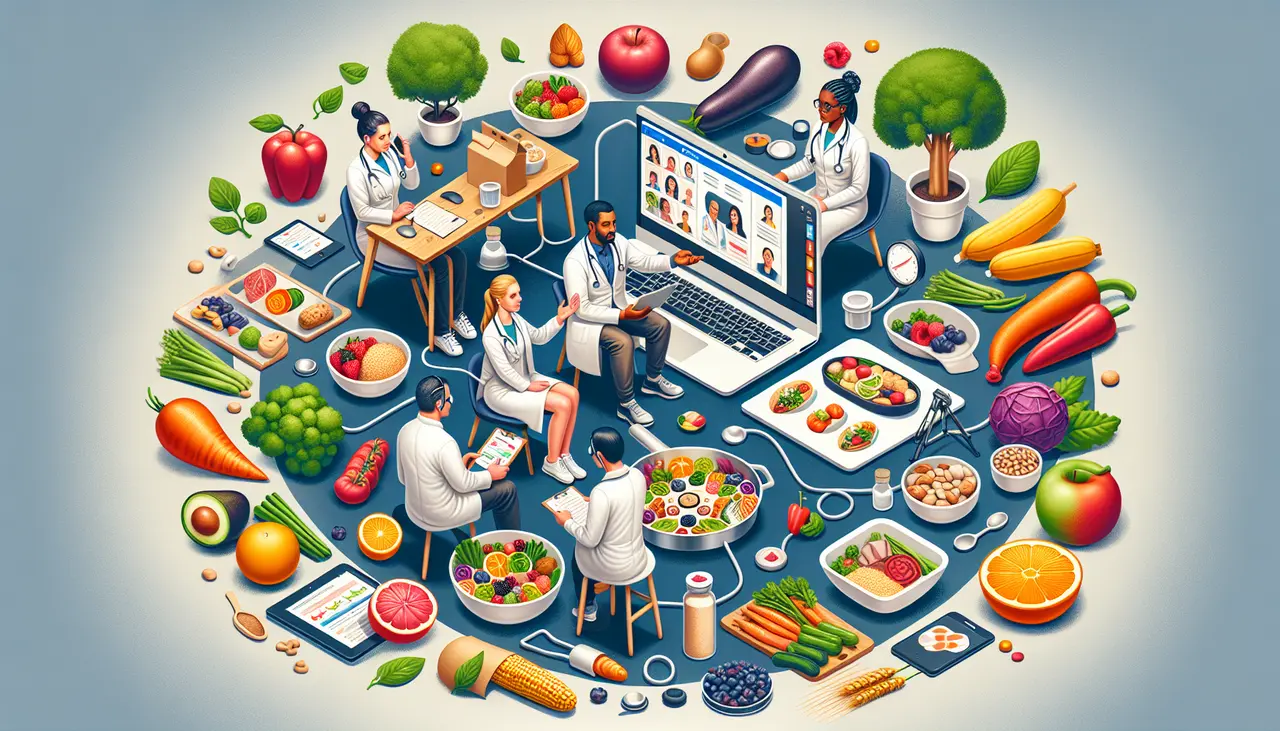The Power of Personalized Diets Role in Managing Chronic Diseases
Introduction to Personalized Diets
Personalized diets aren’t just a fancy buzzword; they’re a game-changer in managing chronic diseases. Think of your body as a unique ecosystem. What works for one person might not work for another. That’s where personalized diets come into play, tailoring your food intake based on your body’s needs, genetic makeup, and health conditions. This approach moves away from the one-size-fits-all diet plans that blanket the health industry. It dives deep into understanding how your body reacts to different foods. By analyzing factors like genetics, allergies, and existing health conditions, nutritionists can craft a diet that’s as unique as your fingerprint. This means the food you eat is chosen to help manage or even prevent chronic diseases specific to you. It’s about eating smarter, not just healthier.
The Role of Personalized Diets in Disease Management
When it comes to tackling chronic diseases, a one-size-fits-all approach doesn’t cut it. This is where personalized diets step in, playing a crucial role in disease management. Think of your body as a unique machine with specific needs. What works for someone else might not work for you. Personalized diets are crafted keeping in mind your body’s unique requirements, your disease condition, and your genetic makeup. This customization helps in directly targeting the root causes of your chronic condition, rather than just brushing the symptoms under the carpet.
Let’s break it down—personalized diets can help manage blood sugar levels in diabetes, reduce inflammation in autoimmune diseases, and even improve gut health in digestive disorders. These diets consider your allergies, intolerances, and even your taste preferences, making it easier for you to stick to them in the long run. The goal is clear: improve your quality of life while keeping the disease under control. It’s not about imposing strict restrictions but about finding a balanced diet that your body responds well to. So, embracing a personalized diet could be a game-changer in your battle against chronic diseases. It’s not just about eating healthily, but eating smartly for your specific health conditions.
How Personalized Diets are Developed
Doctors and nutritionists start by looking at your genes. Yes, the DNA test tells them foods that might be your friend or foe based on your genetic makeup. Next, they factor in your lifestyle – how active you are, what’s your sleep pattern, and even stress levels. All these pieces of information are crucial. Then, there’s your gut health. A simple test can reveal the types of bacteria living in your gut, which plays a huge role in digestion and how you absorb nutrients. Combining these details, experts craft a diet tailored just for you. It’s not about following a generic plan but eating what your body thrives on.
Chronic Diseases and Nutrition: What’s the Connection?
Chronic diseases like diabetes, heart disease, and obesity have a tight grip on millions around the world. What you eat plays a crucial role in controlling these conditions. Essentially, food acts as fuel and medicine for your body. Consuming the right kinds directly influences your body’s ability to fight or manage these diseases. For instance, a diet low in processed foods and high in fruits, vegetables, and whole grains can significantly reduce your risk of these conditions. It’s all about creating a balance that supports your body’s needs. Personalized diets take this a step further by tailoring food choices to your unique health requirements, lifestyle, and even genetic makeup, offering a powerful tool against chronic diseases. So, the connection? It’s deep. What you put on your plate can either be your best ally or your worst enemy in the battle against chronic diseases.
The Impact of Genetics on Diet and Chronic Disease
Your genes play a huge role in how your body responds to different foods. This is a key reason why a diet that works wonders for one person might not do much for another. When it comes to chronic diseases like diabetes, heart disease, and obesity, genetics can determine which foods might help you manage these conditions better or, conversely, which ones to avoid. For instance, some people might process fats totally fine, while others need to watch their fat intake due to a higher risk of heart disease. By understanding your genetic makeup, you can tailor your diet to leverage foods that are beneficial for you, potentially reducing the severity or slowing the progression of chronic diseases. It’s not about a one-size-fits-all diet; it’s about creating a personalized nutrition plan that works with your body, not against it.
Success Stories: Real-life Examples of Chronic Disease Management
Many people have turned their lives around by switching to personalized diets tailored to manage their chronic diseases. Take Sarah, for example. She was battling Type 2 diabetes and struggling with her blood sugar levels despite being on medication. Once she shifted to a diet designed specifically for her condition, not only did her blood sugar levels stabilize, but she also managed to reduce her dependency on medication. Then there’s John, who has been living with Crohn’s disease for years. The constant pain and discomfort became a thing of the past once he adopted a diet eliminating foods that triggered his symptoms. These stories are not just inspiring; they’re proof that with the right approach, it’s possible to live a healthier life despite having a chronic disease. It’s all about finding what works for you, and in many cases, the right diet can make a world of difference.
Personalized Diet Plans: What to Include and What to Avoid
When building a personalized diet plan, especially for managing chronic diseases, think simplicity and balance. Start with foods to include. Top of the list? Vegetables and fruits, full of vitamins, minerals, and fibers, should be your best friends. Lean proteins like chicken, fish, and legumes are next, building and repairing your body without excess fat. Whole grains and healthy fats from nuts, seeds, and olive oil will fuel your body and keep your heart strong. Now, the avoid list. Cut down on processed foods, sugary snacks, and sodas. They’re not doing you any favors, spiking your blood sugar and bad fat levels. Red meats and high-fat dairy can be reduced too, as they may contribute to heart issues and inflammation. Salt, keep it low; high blood pressure isn’t welcome here. Remember, balance is key; no food is entirely off-limits. It’s about how much and how often. Your diet should be a blend of what your body needs, influenced by your chronic condition, ensuring you’re getting the right nutrients without aggravating symptoms. Make it colorful, varied, and enjoyable. Your body will thank you.
Integrating a Personalized Diet into Your Lifestyle
Integrating a personalized diet into your lifestyle might seem daunting at first, but it’s quite straightforward. Start by understanding what foods work best for your body. This usually involves getting tests to identify any food intolerances or sensitivities you have. Next, ditch the one-size-fits-all diet plans. Instead, focus on foods that enhance your well-being and help manage your chronic disease symptoms. Consider consulting a nutritionist. They can tailor a diet plan that fits your lifestyle, taste preferences, and health goals. Begin by making small changes. Swap out processed foods for whole foods, increase your intake of fruits and veggies, and listen to your body’s response. Remember, consistency is key. Stick to your personalized diet, and over time, these changes will become part of your daily routine. This way, managing your chronic disease doesn’t become a chore but a natural part of your lifestyle.
Monitoring Progress and Adjusting Your Personalized Diet
Monitoring your progress is key to seeing if your personalized diet is actually making a difference in managing your chronic disease. It’s like keeping an eye on the road when driving; if you don’t watch where you’re going, you might veer off track. Start by jotting down your daily food intake, symptoms, and how you’re feeling overall. This log will reveal patterns over time, showing you what works and what doesn’t. If a specific food item aggravates your condition, cut it out. Improved symptoms? That food might be a keeper. But remember, our bodies are unique, and what works for one might not work for another. It’s all about finding what fits your body best. Regular check-ins with your healthcare provider are a must. They can look at your progress, make adjustments, and offer insights you might miss. Think of them as your co-pilot. Adjusting your diet based on feedback from your body and your doctor ensures you’re on the right path to managing your chronic disease effectively. Think of it as a journey where small tweaks can lead to big changes in how you feel. Keep monitoring, keep adjusting, and stay focused on your health goals.
Conclusion: The Future of Personalized Diets in Healthcare
Looking forward, personalized diets will define the next era of healthcare. The era where one-size-fits-all advice steps down for tailored nutrition plans. We’re talking about diets specifically designed for you, considering your genetic makeup, environment, and health needs. Think less guesswork, more precision. This shift will not only make managing chronic diseases like diabetes, heart conditions, and obesity more effective but will also lead to better overall health outcomes. As research progresses, expect to see this approach become the standard, where your diet is as unique as your fingerprint. The future is about empowering you with knowledge and choices that fit precisely, embracing the unique puzzle of your health.




